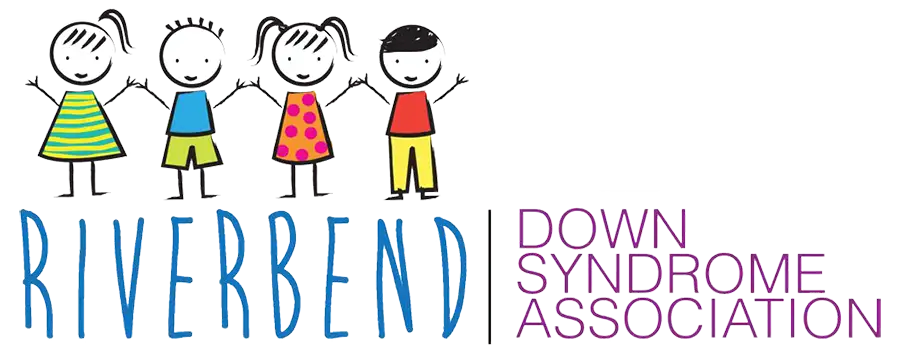
New and Expectant Parents
If you’re here, it’s likely that you’ve recently received the news that your baby may have Down syndrome. This can be an overwhelming and uncertain time, filled with a range of emotions. It’s completely normal to feel a sense of loss for the child you had envisioned. Please know that we understand what you’re going through, and we are here to support you.
The Riverbend Down Syndrome Association was founded by parents who have navigated this journey themselves. One of our core missions is to provide families with information and encouragement during this challenging time. Many parents find that talking to others who have experience with Down syndrome is incredibly helpful. If you’d like to connect with someone, please reach out to us at rdsasecretary7@gmail.com. We are here to answer any questions and provide the resources you need.

What Should I Expect If My Baby Might Have Down Syndrome?
You may be here because you’ve received unexpected news: your baby might have Down syndrome. This information is specifically designed for parents who have recently learned that their child may have this condition or who have been advised to undergo a screening or diagnostic test.
We hope this information provides some comfort and clarity as you navigate this journey. Here are a few important considerations and steps to anticipate before your baby arrives.
If a prenatal screening test has been recommended, it’s important to know that participation is optional. While these tests are standard practice, the decision ultimately rests with you. This guide aims to help you evaluate whether a Down syndrome screening test aligns with your family’s needs and how to interpret the results.
The National Down Syndrome Congress does not endorse or oppose prenatal screening, but it’s crucial that you have accurate and comprehensive information about these tests before deciding to proceed.
In 2006, the American College of Obstetricians and Gynecologists (ACOG) recommended that all pregnant women, regardless of age, be offered prenatal screening tests. This recommendation stems from the fact that 80% of babies with Down syndrome are born to women under 35. Although older mothers face higher risks due to the age of their eggs, the majority of births to women aged 18-35 result in children with Down syndrome simply because they account for more pregnancies.
Several non-invasive tests, such as ultrasounds and maternal blood tests, can assess the likelihood of Down syndrome. However, only invasive procedures—like amniocentesis and chorionic villus sampling (CVS)—can confirm a diagnosis. Here’s a brief overview of the tests:
- Ultrasound: Measures the nuchal translucency at the back of the baby’s neck; excess fluid may indicate potential abnormalities.
- Blood Tests: These measure levels of pregnancy-associated plasma protein-A (PAPP-A) and human chorionic gonadotropin (HCG) hormones.
- Amniocentesis: Involves withdrawing amniotic fluid to analyze fetal chromosomes, typically done after 15 weeks. There is a small risk of miscarriage.
- Chorionic Villus Sampling (CVS): Samples placental tissue to analyze chromosomes, generally performed after 10 weeks, with a slightly higher miscarriage risk compared to amniocentesis.
- Cordocentesis (PUBS): Involves taking fetal blood from the umbilical cord for chromosome analysis, done between 18 and 22 weeks, and carries a higher risk of miscarriage.
Prenatal screening can allow for informed decision-making about your pregnancy. If you would not consider terminating a pregnancy regardless of the outcome, you might decide against screening. If you choose to decline, your decision should be respected without pressure.
Receiving news about a potential diagnosis does not change the pregnancy itself. Assuming you are healthy, focus on enjoying this time. However, be aware that many babies with Down syndrome may have associated health concerns, such as cardiovascular or gastrointestinal issues, which can often be detected prenatally.
Take your time to gather information and discuss your options with your partner, family, and friends. It’s important to approach this process thoughtfully and at your own pace. Remember, every child is unique, and the information about Down syndrome is general—what matters most is your individual situation.
Once your baby arrives, connect with a local Down syndrome organization. They can connect you with experienced parents who can provide invaluable support and insights into raising a child with Down syndrome.
While some may view parenting a child with Down syndrome as a burden, we believe it is a journey filled with challenges and rewards. Your child is a unique individual with immense potential, ready to grow and thrive. As they develop, you may encounter moments of frustration, but you will also experience joy and fulfillment in ways you never anticipated.
How to Care for, Support, and Love Your New Baby
Welcoming a new baby is an exciting and transformative experience, and when your child is born with Down syndrome, this journey brings unique considerations. Your primary focus should be on loving and nurturing the beautiful baby in your arms.
The arrival of a baby often leads to a flurry of questions and to-do lists, but remember: every child is, first and foremost, a baby. There’s something truly special about the connection you share, filled with wonder and love, regardless of any diagnosis.
As you hold your little one, it’s natural to feel a mix of emotions, especially when thinking about the challenges that may come with Down syndrome. Many parents seek guidance on how to help their children thrive. While it’s important to understand potential developmental and medical considerations, it’s equally essential to cherish the precious moments you share.
Your baby will have their unique abilities and personality traits, and while some areas may require additional support, the most significant thing you can provide is unconditional love. The early years are about cuddling, feeding, and bonding activities that don’t require any formal training.
Here are a few practical steps you can take to ensure your baby’s well-being and happiness:
- Enjoy Every Moment: Spend time playing, reading, and interacting with your baby. These moments foster attachment and joy.
- Connect with Other Parents: Find support groups in your area. Sharing experiences with those who understand can be invaluable.
- Educate Yourself About Down Syndrome: Seek out current resources to understand your child’s diagnosis and developmental needs.
- Explore Early Intervention Programs: Early intervention can significantly support your child’s development. Each state has resources available for families.
- Prioritize Your Well-Being: Taking care of yourself is essential. Nurture your relationships and accept help when offered.
- Choose the Right Healthcare Provider: Find a healthcare professional familiar with Down syndrome who can address specific medical needs and guide you through care options.
- Research Local Resources: Connect with local services that can provide support and assistance as your child grows.
- Acknowledge Your Emotions: It’s normal to experience a range of feelings. Allow yourself to grieve any unmet expectations while also celebrating your child’s uniqueness.
Remember, your child is an individual with their own strengths and potential. Focus on the joy and love that they bring into your life. Each moment spent together is a step in building a strong bond.
In the words of Emily Perl Kingsley, raising a child with a disability can feel like landing in “Holland” instead of “Italy.” While it may not be what you expected, Holland has its own beauty, filled with opportunities for joy and discovery.
As your child grows, they can achieve great things: build careers, form relationships, and lead fulfilling lives. While challenges may arise, focusing on their unique abilities will help you nurture their dreams. Remember, every child has potential, and with your love and support, they can flourish.


